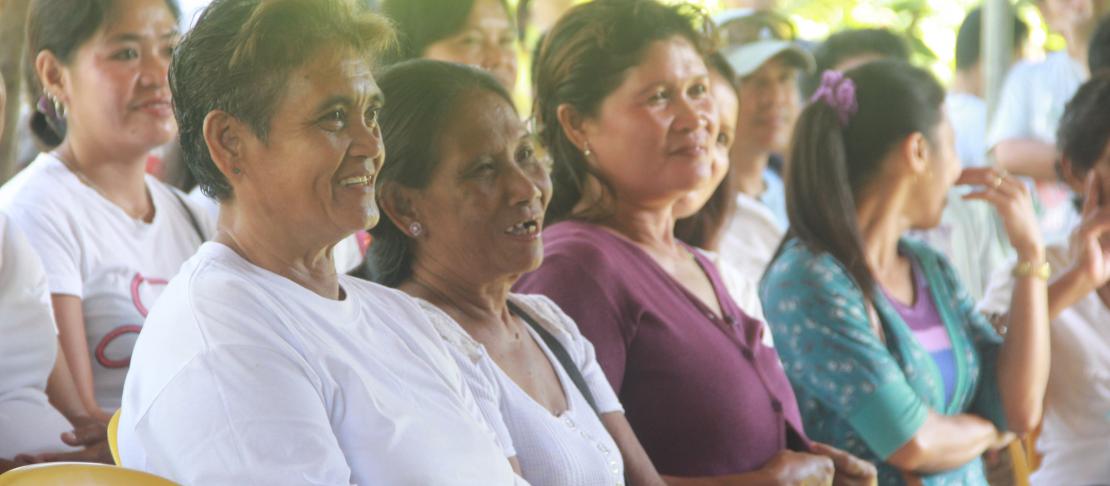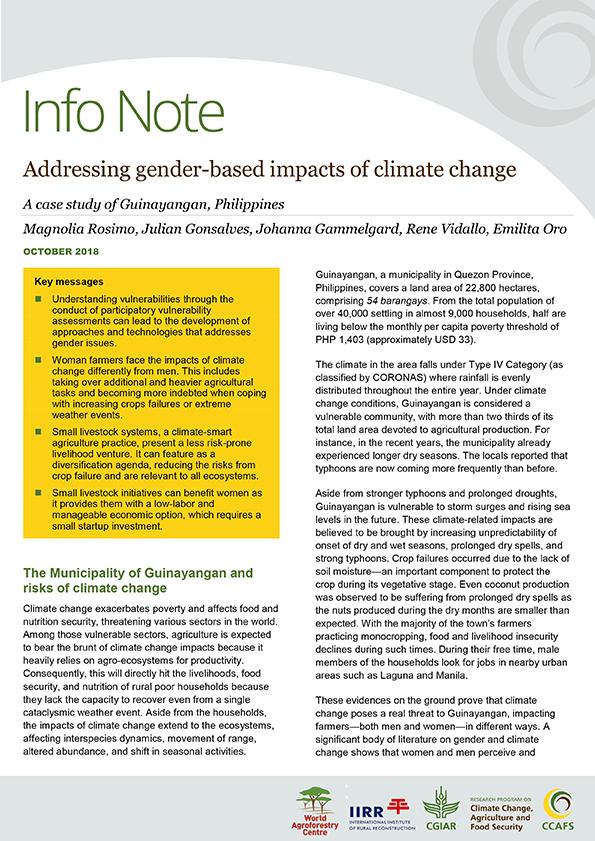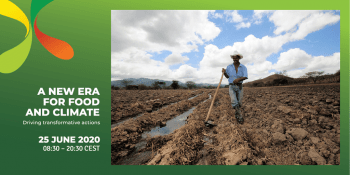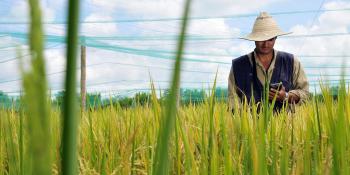A climate-smart investment for female farmers

The effects of climate change are different on men and women. Women are usually more vulnerable to its impacts than men due to the roles assigned to them by society.
Climate change knows no gender and spares no-one. Gender; however, matters at the societal level. Women, who are often socially restricted to upholding specific roles within their households, are highly vulnerable to the impacts of climate change. With their current status in the society, they lack the necessary means to adapt to these impacts, which range from floods, typhoons and droughts, among others.
In a case study in the Guinayangan Climate-Smart Village (CSV) in the Philippines, small-scale native pig production was introduced as a low-cost investment that women can manage. It was tested in Arbismen, a barangay in the Guinayangan CSV, to show that women may still participate in climate-smart agriculture (CSA) initiatives that can enhance the adaptive capacities and reduce the greenhouse gas emissions of communities.
This case study exhibits the transformative potential of CSA, which can provide livelihood options for farmers and empower women inside and outside their households. The study was implemented by the International Institute of Rural Reconstruction (IIRR) and World Agroforestry Centre (ICRAF) and was supported by the CGIAR Research Program on Climate Change, Agriculture and Food Security in Southeast Asia (CCAFS SEA).
 Click here to read the publication. |
High survival rates and protein content
Native pigs can withstand temperature changes and natural disasters, making them reliable investments under climate change. Their survival rates can be further boosted by an optimal type of housing, which features ventilation through the plant- and animal-based materials and hygienic bedding with the use of rice husk. Native pigs are also known for their high protein content.
There are also a number of options to earn an income from growing native pigs. For instance, farmers can sell young pigs for PHP 2000 (almost USD 40). If they decide to sell the fully grown pigs, the price ranges from PHP 100–120 (around USD 2) per kilo. Butchered pigs, meanwhile, are priced for no more than PHP 180 (around USD 3) per kilo. Processed pigs, or those cooked into lechon, a famous Filipino dish, can be priced at PHP 200 (around USD 4) per kilo.
The above findings mean that growing pigs can serve as both a source of income and food for the households, improving household food security and empowering women.
High involvement in the households
Based on an IIRR assessment of CSA options, pig raising is now viewed as a livelihood for women. Small-scale pig production is not labor-intensive and only requires a small investment. Furthermore, the study showed that in cased that women earned income by pig raising, they could start contributing to their household's income, and as a result they could expanded their roles within. Specifically, they became more vocal in terms of directing their finances and other key matters.
This case study demonstrates how a small investment, such as pig raising can become an important livelihood opportunity for women who face climate change impacts differently from men.
Download the publication: Rosimo M, Gonsalves J, Gammelgard J, Vidallo R, Oro E. 2018. Addressing gender-based impacts of climate change: A case study of Guinayangan, Philippines. CCAFS Info note. Wageningen, Netherlands: CGIAR Research Program on Climate Change, Agriculture and Food Security (CCAFS).
Read more:
- News: Low inputs, big gains: The benefits of climate-smart livestock production
- News: Weather, climate and gender: Promoting gender equality in rural climate services
- Publication: Inclusion of gender equality in monitoring and evaluation of climate services
Renz Louie Celeridad is the Junior Communications Specialist for ICRAF Philippines and a Communications Consultant for CCAFS Southeast Asia.



